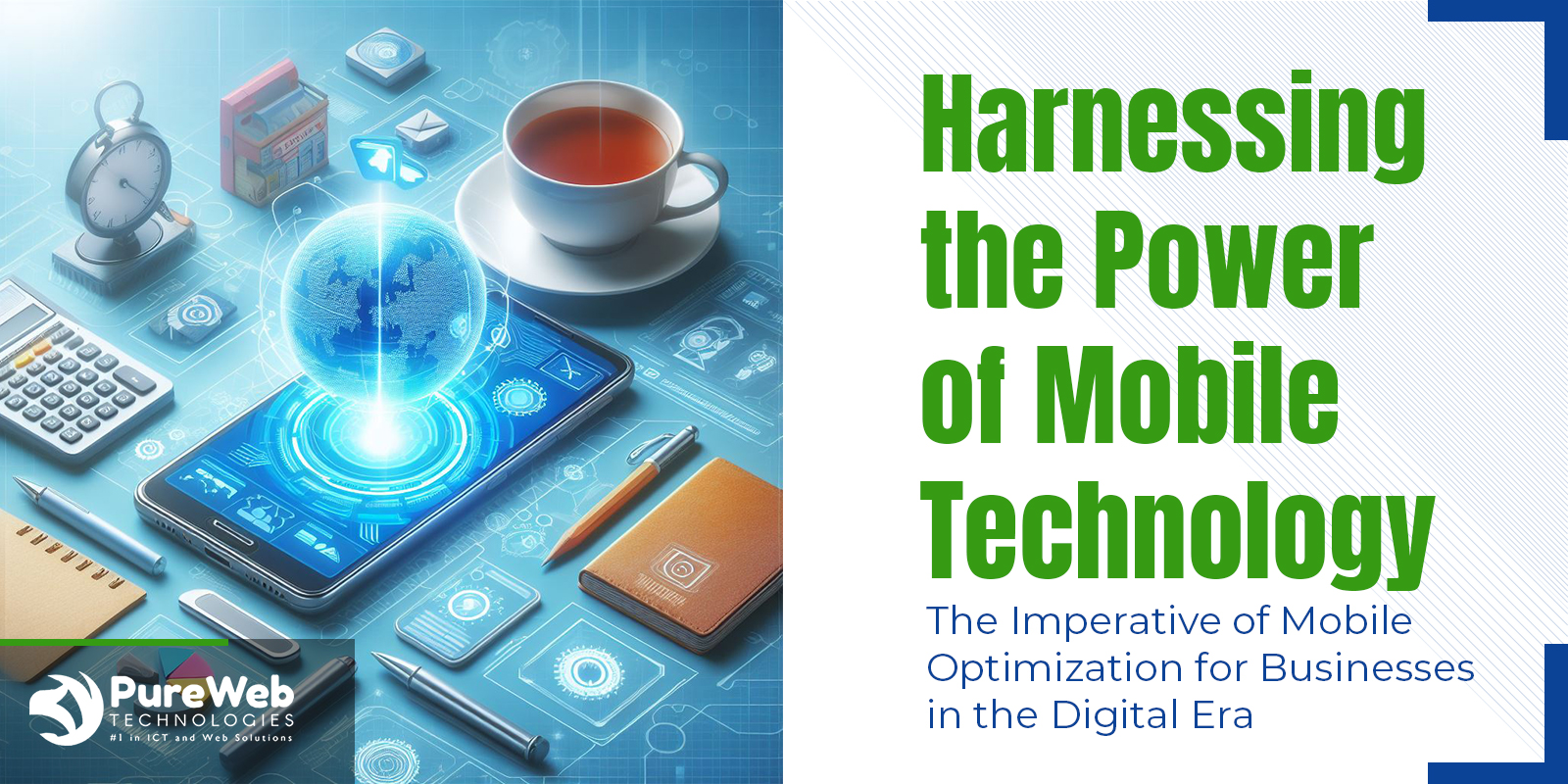
Harnessing the Power of Mobile Technology:
The Imperative of Mobile Optimization for Businesses in the Digital Era
Introduction
In today’s digital age, mobile devices have become an integral part of our daily lives. The rapid advancement of technology has transformed these handheld gadgets into powerful tools that provide instant access to information, communication, and online services. For businesses, embracing mobile optimization is no longer a choice but a necessity to stay relevant and reach their target audience effectively. In this article, we will explore the impact of mobile devices on the business landscape and emphasize the importance of mobile optimization in staying ahead in the digital era.
1. The Rise of Mobile Devices
Mobile devices, such as smartphones and tablets, have seen a massive surge in popularity and usage across the globe. According to Statista, there are over 3 billion smartphone users worldwide, representing a significant portion of the global population. This shift in consumer behavior has reshaped not only how people interact with the digital world but also how businesses engage with their customers.
2. Mobile Optimization and User Experience
With the majority of online activities taking place on mobile devices, businesses must prioritize mobile optimization to enhance the user experience. A poorly optimized website on mobile platforms can lead to frustrating navigation, slow loading times, and a loss of potential customers. By investing in mobile optimization, businesses can ensure that their websites are responsive, visually appealing, and easy to navigate, thereby improving their chances of engaging users and encouraging conversions.
3. Mobile-First Indexing
To adapt to the mobile-centric world, search engines like Google have embraced mobile-first indexing. This means that search engines primarily use the mobile version of a website’s content for indexing and ranking purposes. As a result, businesses must prioritize mobile optimization to ensure that their websites are easily accessible, crawlable, and provide a seamless user experience across various devices. Mobile-optimized websites are more likely to rank higher in search engine results pages (SERPs), driving more organic traffic and increasing visibility.
4. Impact on Local Searches
Mobile devices have become the go-to tool for local searches, with users often seeking nearby businesses, restaurants, or services. This trend highlights the significance of local SEO and mobile optimization for businesses operating in specific geographic areas. Optimize your website for local search by including relevant location-based keywords, creating a Google My Business profile, and encouraging customer reviews. A well-optimized mobile presence helps local businesses tap into their target audience and attract potential customers looking for specific products or services.
5. Voice Search and Mobile Optimization
The rise of voice assistants like Siri, Alexa, and Google Assistant has further emphasized the importance of mobile optimization. Voice searches are typically conversational and yield different results compared to text-based searches. By incorporating natural language and long-tail keywords in your content, businesses can improve their chances of getting featured in voice search results. Optimizing for voice search not only boosts mobile visibility but also enhances the overall user experience by providing quick and accurate information.
Conclusion
The rapid advancement of mobile technology has transformed the way businesses interact with their audiences. Mobile optimization is no longer an option but a vital aspect of successful digital marketing strategies. By prioritizing mobile optimization, businesses can enhance user experiences, improve search engine rankings, attract local customers, and tap into the potential of voice search. Embracing the power of mobile technology and staying ahead in the digital era is now intrinsically linked to the ability to optimize for mobile devices effectively.








